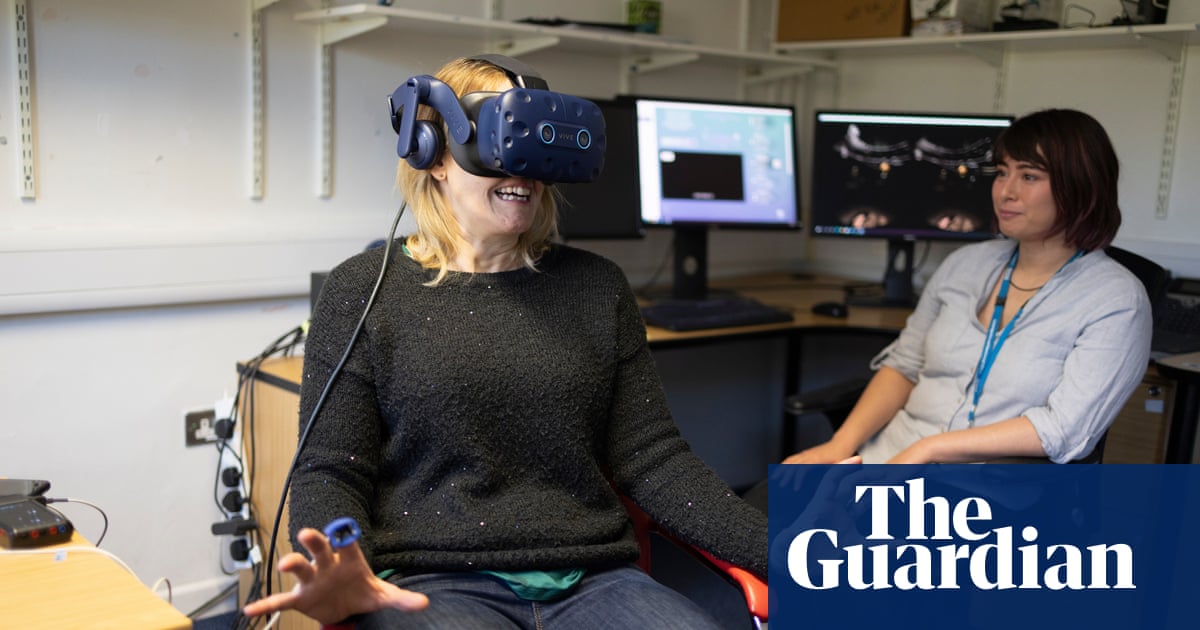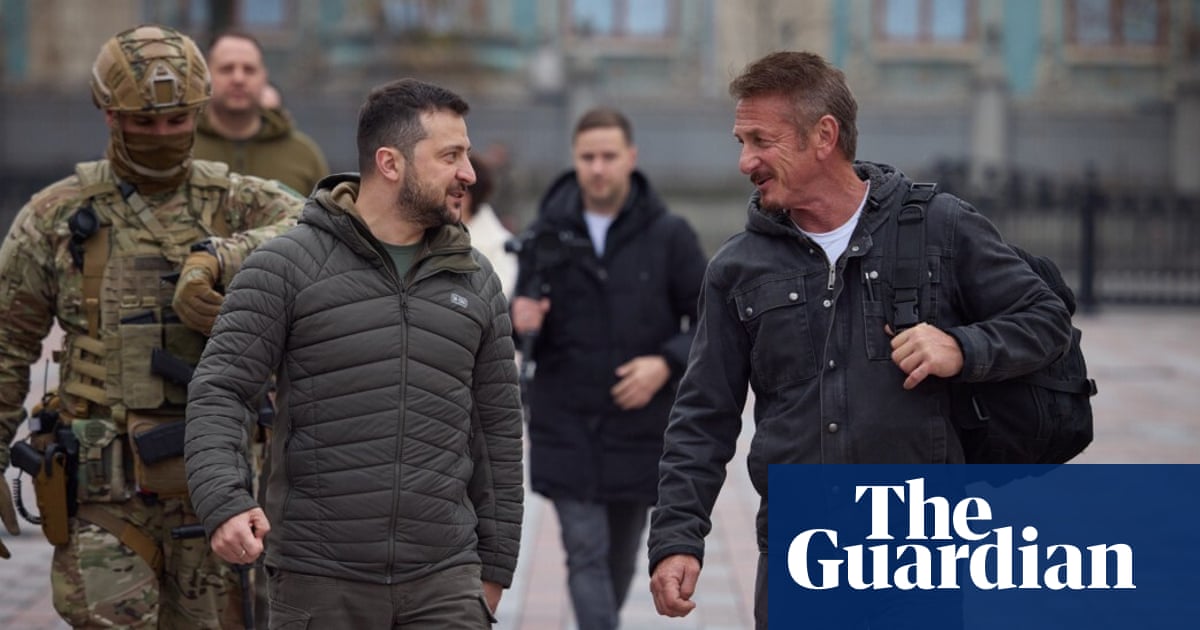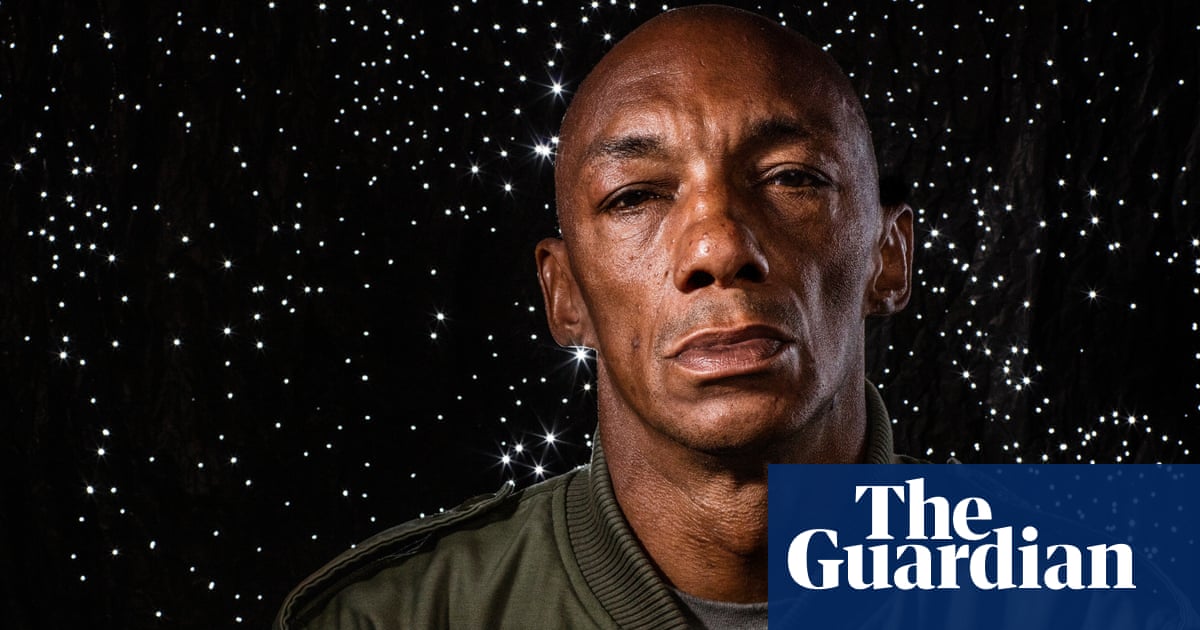
hen Sacha Dhawan learned that he had been chosen to play Doctor Who baddie The Master, it should have been one of the biggest moments of his career. “My agent was ecstatic,” he says. “The BBC was ecstatic.” But he wasn’t. “I put the phone down and I couldn’t have felt more sad,” he says. The reason, it turns out, is a hidden battle with anxiety that Dhawan had been waging for years.
The opportunity was too big to pass up, but at that moment its scale felt insurmountable. “I would be the first British South Asian actor to play The Master,” he says. “So I’m kind of representing not only the Whoniverse but my community. And if I fuck this up, they aren’t going to be casting another South Asian actor for this.”
Now, with hindsight, Dhawan admits that he was catastrophising a little, but his worries felt real. “The saddest thing in this business is that no one will know if you have something like anxiety, because you always have to have this confidence on set. No one will know you’ve been sitting in your trailer, not eating your lunch because you’re trying to sleep because you want to switch the anxiety off. The heartache I’d go through before a scene – worrying that I wouldn’t deliver – was traumatic.”
Dhawan is currently delivering in The Great, which has just launched on Channel 4. An “occasionally true” period piece recounting the life of Catherine the Great, the series slots Dhawan alongside Elle Fanning and Nicholas Hoult in a comedy drama that is both riotous and visceral. (One character soils themselves during a sex act.)
Dhawan plays Orlo – not to be confused with Catherine’s lover Count Orlov – who probably didn’t exist in real life. But, in an age where commenters heap scorn on The Crown for not being a word-perfect depiction of past events, this flippant attitude towards the truth feels rather bracing. It’s from the pen of Tony McNamara, who was Oscar-nominated for co-writing The Favourite. “He sees it,” says Dhawan, “as the story of a young woman who marries a douchebag and then tries to kill him. And that’s as much as you need to know.” Dhawan’s journey from meek courtier into something far meatier is one of the treats of the series.
Now 36, Dhawan has been acting more or less non-stop since the age of 10, when he played the lead in the children’s ITV series Out of Sight. From there, he vaulted to The History Boys, appearing on stage alongside Russell Tovey and James Corden. He had roles in 24 and Line of Duty, before winning a major role in the Marvel series Iron Fist. Then came Doctor Who and The Great, but this torrent of work came at a cost to his mental health.
Lockdown gave him his first real chance to seek help. “It was fucking scary,” he says of taking this first step. “Especially since us guys aren’t very good at talking about these things. And the South Asian community aren’t very good about talking about these things either. In some way, you’re conditioned to feel like a bit of a failure, that you’re letting your community down a bit.”
It was an actor on The Great who suggested psychosynthesis, a talk-based therapy that focuses on personal growth. “It really gets you to articulate your thoughts.” But the nature of the treatment seems secondary to his decision to seek help in the first place. “When you take that leap, you realise you’re not on your own. You think, ‘Well, why did I not do this before?’”
Dhawan thinks much of his anxiety came from his sense of identity. “It’s confused,” he says. “I’ve spent so many years going, ‘OK, I’m not brown enough and I’m not white enough. When you go on sets and you don’t see anyone like you, you think, ‘You’re just very lucky to be here, so keep your mouth shut.’”
During lockdown, he started connecting with other South Asian creatives. “I’ve been disssociated from that culture since I was a kid,” he says. “There were only two brown kids in my school – and we used to walk past each other without even looking up.” His first contact was the writer Nikesh Shukla, with whom he made a film for YouTube: Yash Gill’s Power Half Hour, a brilliant mental health-themed short in which he played the seemingly joyful titular standup.
“The pressure of being British South Asian,” he says, “is that it feels like you’re not just doing it for yourself but the entire community. It feels like your success is everyone’s success, but your failures are also everyone’s failure. It shouldn’t be like that any more. You should feel confident enough to take risks.”
His career is still on rockets: season two of The Great begins production soon and, after what appeared to be a narrow escape for The Master at the conclusion of the latest series, he’s eager to return to Doctor Who. But, for now, Dhawan seems more buoyed up by the rediscovery of who he actually is. “I feel like I’ve used my parents’ story for so many years,” he says. “When people say, ‘Hey, what’s your story?’ you go, ‘Well, my parents came from India.’ ‘OK, but who are you?’ And I’m like, ‘I don’t know.’”
Although he still doesn’t feel entirely out of the woods, his enthusiasm is infectious. He’s in the early stages of producing a new film, written for two South Asian actors, about which he is reluctant to say too much, although he does ask: “Why can’t we be in a sci-fi movie? Why does it have to be about arranged marriages or terrorism?”
As we begin to wind up, Dhawan makes another admission. “I had a conversation with the Guardian years ago,” he says. “They were asking about identity. And even though all this stuff was here in my heart, I was too scared to say what I felt. I was like, ‘Your opinion doesn’t matter. You’re not as articulate as Riz Ahmed, so shut up.’”
I tell him his openness will probably help those in a similar position. “It’s really scary,” he replies. “You’re the first person I’ve really gone into detail with. I mentioned my anxiety to someone once and they replied, ‘Do you not worry that people might think of not casting you because of it?’”
As I leave, I tell Dhawan how much I enjoyed The Great. “Yes, mate!” he beams, suddenly unburdened. “I have to remember to just enjoy the ride.”












